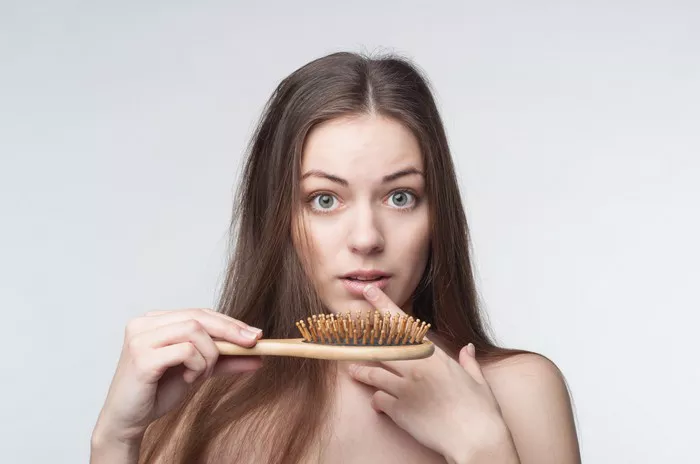In the pursuit of luscious locks, many individuals seek out various hair care products, treatments, and dietary supplements. Among the plethora of options available, zinc often stands out as a vital nutrient for promoting hair health. While commonly associated with immune function and wound healing, zinc plays a lesser-known yet significant role in maintaining the strength, growth, and appearance of hair. In this comprehensive guide, we delve into the science behind zinc’s impact on hair health, exploring its benefits, sources, and the importance of maintaining adequate levels for optimal hair growth and vitality.
Understanding Zinc: A Micronutrient with Macro Effects
Zinc is an essential micronutrient required for numerous physiological processes within the body. It serves as a cofactor for over 300 enzymes involved in various biochemical reactions, including protein synthesis, DNA repair, and cell division. Zinc also plays a critical role in supporting the immune system, regulating gene expression, and maintaining skin health. However, its significance in hair growth and maintenance is often underestimated.
The Role of Zinc in Hair Growth
Hair follicles are highly metabolically active structures that require a steady supply of nutrients to support their growth and function. Zinc contributes to this process in several ways:
1. Cell Proliferation and Differentiation: Zinc facilitates cell proliferation and differentiation in the hair follicle, essential processes for the growth and renewal of hair strands. Adequate zinc levels promote the proliferation of follicular keratinocytes, the cells responsible for producing keratin, the primary protein component of hair.
2. DNA Synthesis and Repair: Zinc is crucial for DNA synthesis and repair, which are essential processes for the maintenance of healthy hair follicles. By ensuring the integrity of DNA molecules within follicular cells, zinc helps prevent damage that could hinder hair growth and lead to hair loss.
3. Hormone Regulation: Zinc plays a role in regulating hormone levels, including testosterone and dihydrotestosterone (DHT), which are implicated in hair growth and loss. Imbalances in these hormones can contribute to conditions such as androgenetic alopecia, commonly known as male or female pattern baldness. By modulating hormone levels, zinc may help mitigate the effects of androgenetic alopecia and support healthy hair growth.
4. Antioxidant Activity: Zinc exhibits antioxidant properties, protecting hair follicles from oxidative stress and damage caused by free radicals. Oxidative stress can compromise the health and vitality of hair follicles, leading to hair thinning and breakage. By scavenging free radicals and reducing oxidative damage, zinc helps maintain the structural integrity of hair strands.
The Link Between Zinc Deficiency and Hair Loss
Inadequate intake or absorption of zinc can lead to a deficiency, which may manifest in various symptoms, including hair loss. Zinc deficiency has been associated with telogen effluvium, a type of temporary hair loss characterized by excessive shedding due to disruptions in the hair growth cycle. Additionally, zinc deficiency can impair the structural integrity of hair strands, making them more prone to breakage and thinning.
Several factors can contribute to zinc deficiency, including:
- Poor Dietary Intake: Diets low in zinc-rich foods such as meat, seafood, nuts, seeds, and legumes may fail to provide adequate amounts of this essential nutrient.
- Digestive Disorders: Conditions that affect the gastrointestinal tract, such as celiac disease, Crohn’s disease, and ulcerative colitis, can impair zinc absorption, leading to deficiencies.
- Vegetarian or Vegan Diets: Plant-based diets may lack sufficient zinc compared to diets that include animal products, increasing the risk of deficiency among vegetarians and vegans.
- Alcoholism: Excessive alcohol consumption can interfere with zinc absorption and increase urinary zinc excretion, contributing to deficiencies.
- Medications: Certain medications, including diuretics, antacids, and some antibiotics, can interfere with zinc absorption or increase zinc excretion, potentially leading to deficiencies over time.
Individuals experiencing unexplained hair loss or other symptoms of zinc deficiency should consult with a healthcare professional to determine the underlying cause and appropriate course of action.
Harnessing the Benefits of Zinc for Hair Health
Incorporating zinc-rich foods into your diet is an effective way to ensure an adequate intake of this essential nutrient. Some excellent sources of zinc include:
- Shellfish: Oysters, crab, lobster, and shrimp are among the richest food sources of zinc, providing high concentrations of this essential nutrient.
- Red Meat: Beef, lamb, and pork are rich sources of zinc, making them valuable additions to a balanced diet.
- Poultry: Chicken and turkey are good sources of zinc, particularly in the dark meat and poultry skin.
- Fish: Certain types of fish, such as salmon, tuna, and sardines, contain significant amounts of zinc, along with essential omega-3 fatty acids.
- Nuts and Seeds: Pumpkin seeds, cashews, almonds, and peanuts are nutrient-dense snacks that contribute to zinc intake.
- Legumes: Beans, lentils, chickpeas, and peas are plant-based sources of zinc that are suitable for vegetarians and vegans.
- Whole Grains: Whole grains like wheat, oats, and quinoa contain moderate amounts of zinc, along with other essential nutrients.
In addition to dietary sources, zinc supplements are available for individuals who may have difficulty meeting their zinc requirements through diet alone. However, it’s essential to exercise caution when taking supplements and consult with a healthcare professional to determine the appropriate dosage, as excessive zinc intake can lead to adverse effects, including nausea, vomiting, and impaired immune function.
Conclusion
In conclusion, zinc plays a crucial role in promoting hair growth, strength, and vitality. As an essential micronutrient, zinc supports various physiological processes within the body, including cell proliferation, DNA synthesis, hormone regulation, and antioxidant defense. Maintaining adequate zinc levels through a balanced diet that includes zinc-rich foods is key to supporting healthy hair growth and preventing hair loss associated with zinc deficiency. By understanding the importance of zinc in hair health and incorporating zinc-rich foods into your diet, you can nourish your hair from within and enjoy the benefits of vibrant, resilient locks.


